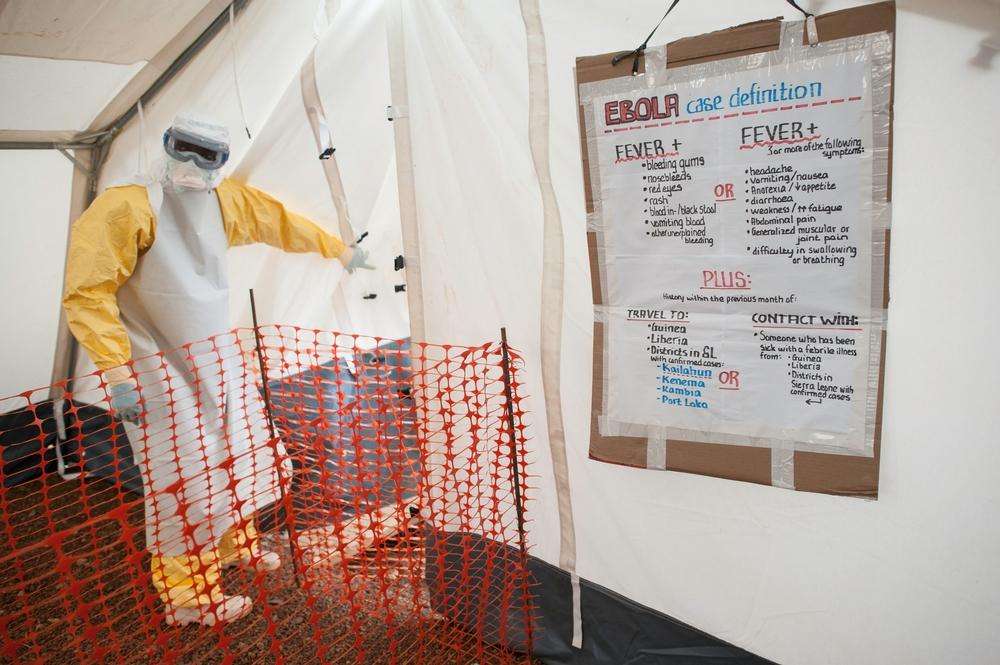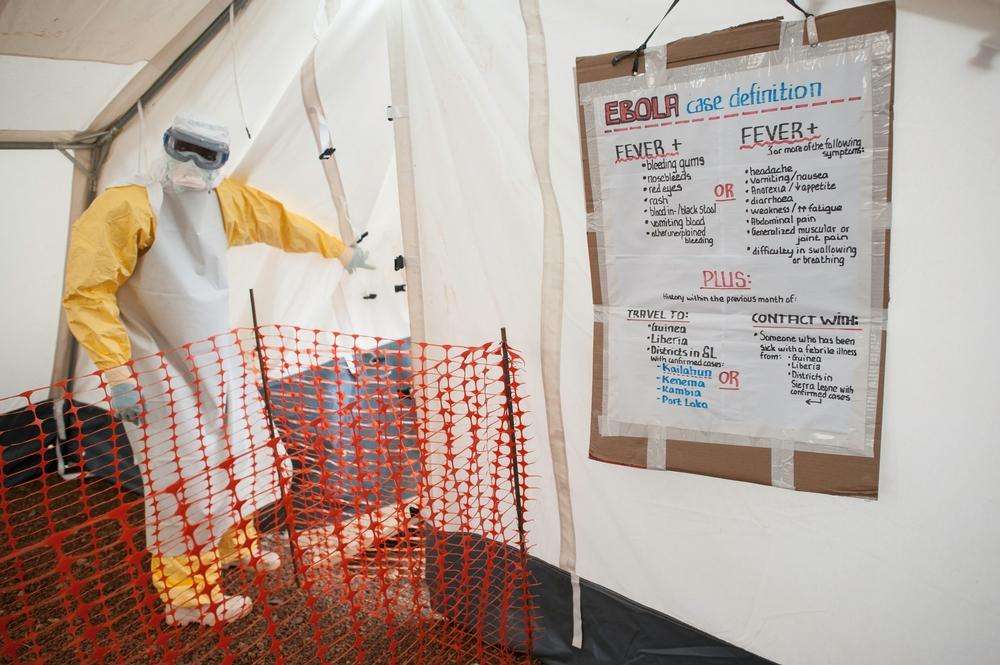Emergency teams from the international medical organization Doctors Without Borders/Médecins Sans Frontières (MSF) are continuing their efforts to fight the Ebola epidemic in west Africa. The disease has claimed 932 lives, according to the World Health Organization (WHO), since the outbreak began in March this year. Over recent weeks, MSF teams have seen a worrying surge in the epidemic, with the number of cases increasing dramatically in Sierra Leone and Liberia, and the disease spreading to many more villages and towns.
MSF currently has 676 staff working in Guinea, Sierra Leone, and Liberia, but warns that it has reached its limit in terms of staff, and urges the WHO, health authorities, and other organizations to scale up their response.
Guinea
In Guinea, MSF is running two Ebola case management centers—one in the capital, Conakry, and one in Guéckédou, in the southwest of the country, where the outbreak began. After a lull in new cases in Guinea, recent weeks have seen an increase in new infections and deaths from Ebola. Currently there are 17 patients in Conakry and nine in Guéckédou.
In Macenta transit center in southwest Guinea, near the Liberian border, MSF is supporting the Ministry of Health by transferring Ebola patients by ambulance for case management in either Conakry or Guékédou. Patients are arriving from a wide area, including the region around Nzerekore.
Figures
- MSF currently has 31 international staff and 300 Guinean staff working in the country.
- In Conakry, to date MSF case management centers have admitted 232 patients; 124 were confirmed to have Ebola. 64 patients have recovered and returned home.
- In Guékédou, to date MSF case management centers have admitted 366 patients; 169 were confirmed to have Ebola. 46 patients have recovered and returned home.
Sierra Leone
In Sierra Leone, MSF’s Ebola case management center in Kailahun, near the border with Guinea, has been expanded to 80 beds, to cope with spiralling patient numbers. Between five and ten new patients are being admitted each day. Currently there are 60 patients in the center. Nine patients were discharged on August 4 after recovering from the disease.
Meanwhile, 200 community health workers are running health promotion activities in the region to increase knowledge about Ebola and educate people on how to protect themselves from infection.
Figures
- MSF currently has 26 international staff and 300 Sierra Leonean staff working in the country.
- In total, MSF case management centers have admitted 260 patients; 174 were confirmed to have Ebola. 36 patients have recovered and returned home.
Liberia
The situation in the Liberian capital, Monrovia, is “catastrophic,” according to Lindis Hurum, MSF emergency coordinator in Liberia. There are reports of at least 40 health workers being infected with Ebola over recent weeks. Most of the city’s hospitals are closed, and there are reports of dead bodies lying in streets and houses.
MSF teams are providing technical support for an Ebola case management center in Monrovia in conjunction with the Ministry of Health, and has started construction of a new case management center.
An MSF team based in Guékédou, Guinea, has recently launched a response in Liberia’s Lofa region, alongside the Guinean border, which has been badly affected by Ebola.
MSF is reinforcing its current team of nine international staff and 10 Liberian staff, but the organization is reaching the limits of its capacity, and there is a dire need for the WHO, Ministry of Health, and other organizations to rapidly and massively scale up the response in Liberia.





